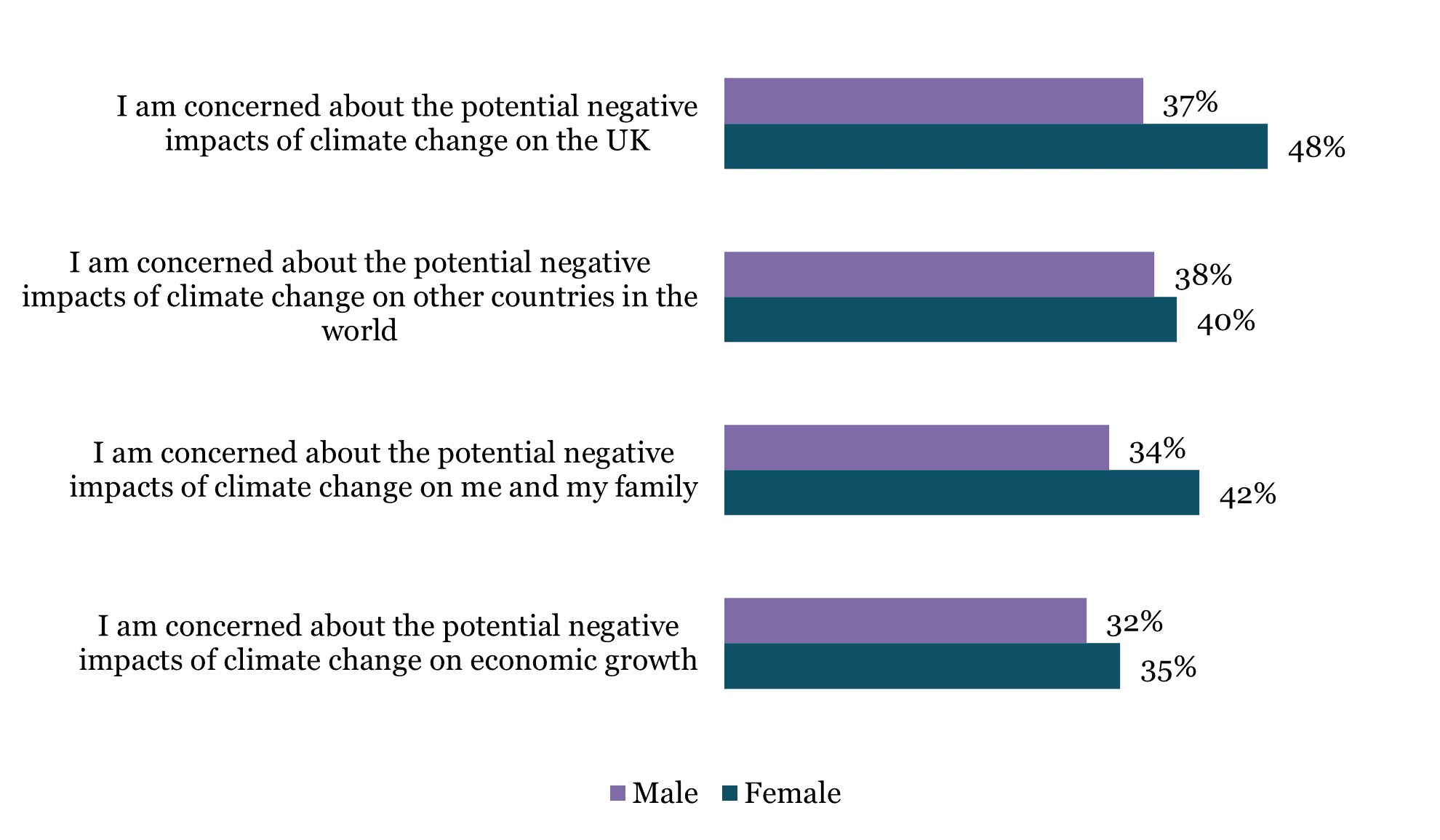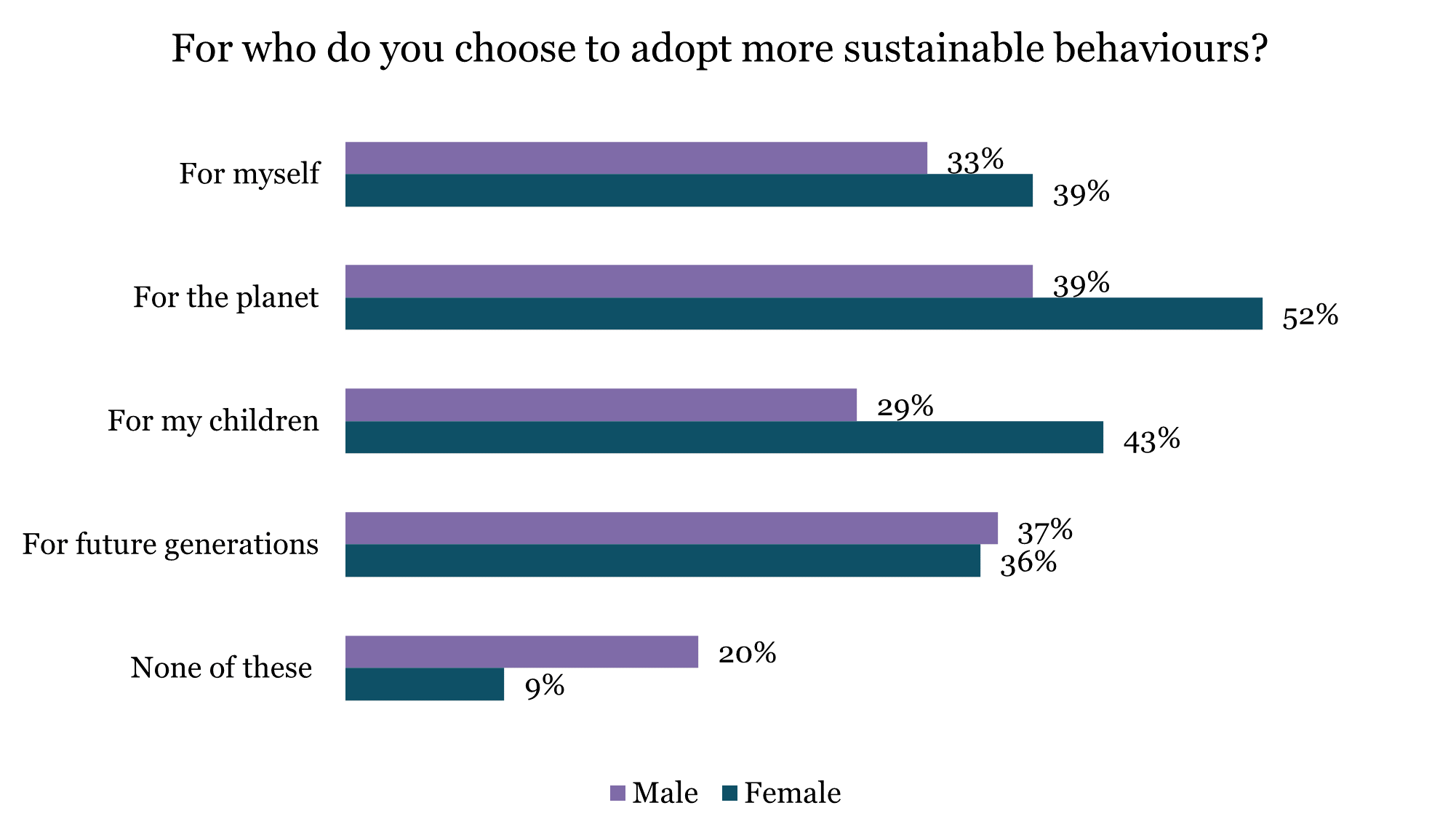

48% of UK females were concerned about the negative impacts of climate change, compared to only 37% of males.
Women are disproportionately affected by environmental issues globally, according to a report from global climate charity, Friends of the Earth. The study highlights that women are more severely affected by natural disasters exacerbated by the climate crisis, with those living in poverty especially vulnerable.
In relation to this reported disparity, Savanta’s research shows that women have more responsible attitudes to sustainability and a greater interest in protecting the environment than men.
Mixed attitudes and actions around sustainability
Our latest Sustainability Segmentation report found that 48% of UK females were concerned about the negative impacts of climate change, compared to only 37% of males. Additionally, Q4 2022 data from Savanta’s Grocery Eye, our quarterly report on UK grocery purchase and consumption behaviours, found over one in four (27%) males ‘don’t pay attention to sustainability issues’, compared to only 21% of females.


^ Source: Savanta Sustainability Segmentation 2022. Q. To what extent are you concerned about each of the following? Base: Males (n=2422), Females (n=2551)
The disparity is also reflected in intentions to make sustainable life changes, with over a third (39%) of men in the UK saying that they would never consider buying meat-free substitutes, compared to a significantly lower 25% of females. Similarly, 36% of males would never consider buying dairy-free substitutes compared to 26% of females.
This gender difference also appears in the principles behind living sustainably. Women are significantly more likely than men to make sustainable changes for the planet and their children.

^ Source: Savanta Grocery Eye Q4 2022 Q. For who do you choose to adopt more sustainable behaviours when purchasing grocery items? Base: Net Rep Sample. Males (n=980), Females (n=1020)
So, what are the reasons for this difference?
The significant differences which exist in the daily considerations and actions taken by men and women can be linked to the work women do in the household. Women are 12% more likely than men to be the main or joint decision-makers for food purchases and are also more likely to be solely or jointly responsible for their household’s energy and utilities (82% versus 76%).
This naturally translates to sustainable behaviours in shopping and domestic chores. For example, 44% of females consider cruelty-free certification important when shopping, compared to only 32% of males, and 37% of males do not think about their water usage when washing, but this is true for only 29% of females.
Why should brands take notice?
The gap between actions and awareness of males versus females, coined the ‘eco-gap’, is in part linked to the language being used at large to communicate sustainability.
Many eco-friendly products are marketed towards females and use rhetoric around caregiving, looking after the planet, and avoiding cruelty. Savanta recommends that brands exercise caution that eco-friendly campaigns, packaging and claims on products aren’t just aimed at females and don’t reinforce the sentiment that sustainability is a female issue.
Brands have a huge opportunity (and responsibility!) to enter this space and communicate sustainable strategies directly with their male customers as well. Just under one in five (19%) males aged 18-24 ‘don’t pay attention to sustainability issues’, compared to over a third (35%) of 55-64s. This highlights the generational difference in sustainable attitudes, and the opportunity for brands with younger customers.
An opportunity to make a difference for the sake of everyone
Overall, this is a complex issue and sustainability is intrinsically linked to many other issues. Savanta’s Sustainability Segmentation report is a good starting point to understand more about your customer base, and how to communicate to the different segments and take them on the sustainability journey with your brand.
Download Savanta’s 2023 Sustainability Segmentation report here:








